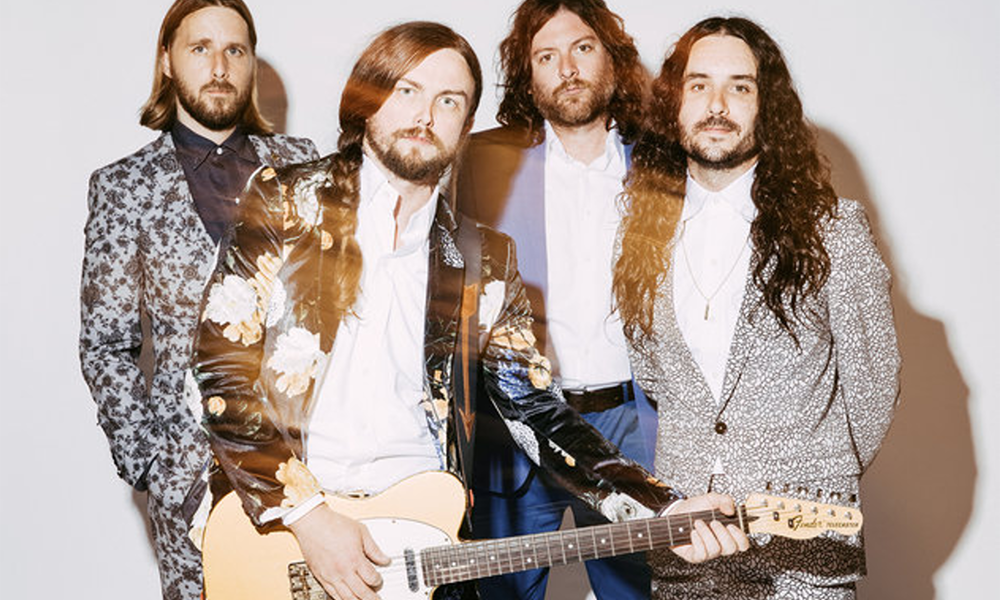Arts & Culture
Q&A with J. Roddy Walston
With a new album and local concerts on the horizon, the rock-and-roll singer reflects on his more formidable days in Baltimore.
You grew up in Tennessee and live in Virginia now. What brought you guys to Baltimore in 2004?
In its early form, the band had gone on a few little tours and we had some buddies in Baltimore, so we’d stop in and play The Talking Head in the old Ottobar space on Davis Street. It seemed like everybody got it. There was rad music happening in Baltimore, we could afford to live there, and my wife, who is an opera singer, was looking at Peabody for grad school. Once we got to town, we slowly started doing shows and meeting people and it went from there.
How do you feel your time in Baltimore has influenced your sound?
When I moved to Baltimore, there were some very creative bands that definitely changed the way I was thinking about music. I was 21, from a bubble of a small southern town, and Baltimore was not that at all. Just as you’re forming as an adult, you have this most beautiful yet hard city. Baltimore definitely shaped my understanding of the world and effectively what I was going to write about.
What was the energy of the music scene like back then?
It was incredible. Every night of the week, you could go see a great band. It felt super exciting, and also a little bit competitive. All of a sudden someone would get a write-up in a magazine, or you’d hear about them selling out a show in New York. They were at the same shows you were going to. Everybody was friends, or within one degree of separation, or they were the bartender or waiter at the restaurant you went to. If you’re the only good athlete in your high school, it doesn’t really make you a better player. But if you’re around people who are doing great work, there is an immediate realness. It makes you think, “I could do great stuff, too.” It makes it seem like anything is possible.
You played a lot of your early shows at the Ottobar on Howard Street.
Ottobar was definitely home base. I actually worked there for a little while, doing the janitor/bar-back/door guy thing. It was nice, because everybody there understood I was in a band, but at the same time, we’d play a sold-out show and feel super triumphant and the next night, some guy would be like, ‘Hey man, last night was great!’ And I’d be like, ‘Thanks, man—are you done with that cup?’ Which was sort of humbling. The timing of this record, with the Ottobar’s 20th anniversary, is almost cosmic.
You’re performing there this month. Do you feel any way about performing this new sound in an old venue?
It’ll be a little strange but be super rad. The Ottobar is a great club, and I think we as a band are the best that we’ve ever sounded. We’ve evolved, as a band and as people. We cleared the playbooks, started fresh, and threw in all these ideas. With this new album, there were no rules. There was no “we can’t do what the band we’ve been would do.” But we were kind of going, “What would the band we want to be do?” That being said, it’s not like we said, “Here’s our new sound!” Everybody was just on board to do something new. It makes it dangerous—we might mess up—but we’re excited. I guess some people will want something that we’re not going to give them, but I don’t really care.
Were these songs leftovers or written in between now and Essential Tremors in 2012?
This is the first record that is totally from scratch in every way: Writing, recording. A lot of times in the past, I would have a notebook full of rough lyrics or ideas or collections of words that I would use as a guide or if I got stuck. This time, I approached it completely different. In a sense, a lot more time has been spent on each song. We’re not covering up our vocals anymore. Every single word I say will be available for people to process.
You’re also a dad now. Has that influenced your process?
I don’t notice any song that sounds like, ‘Hey, I’m a dad—let me tell you a thing or two,’ but it definitely changed me. Having time off, being at home and off the road, having this new studio we built in Richmond really put a different weight and focus on having a balanced life. I think being a father made me a better songwriter.
